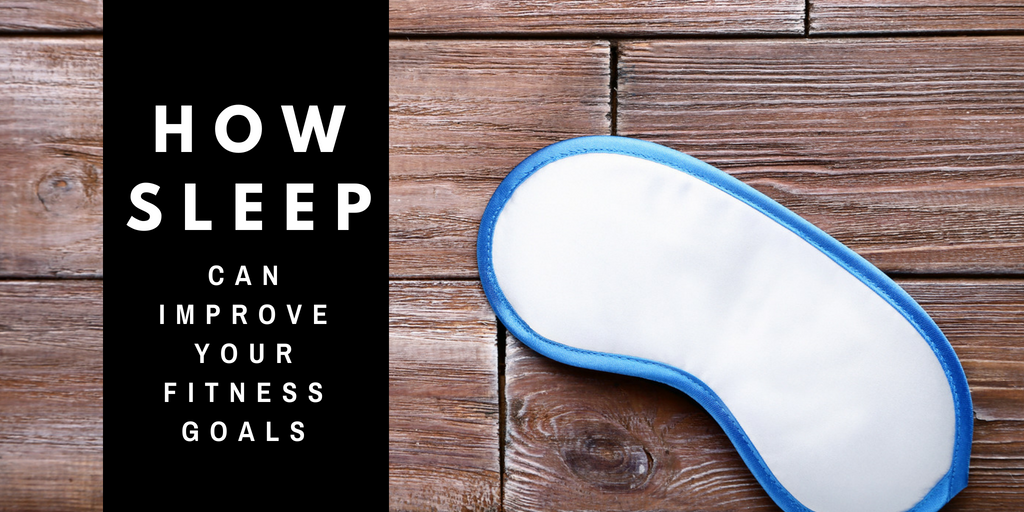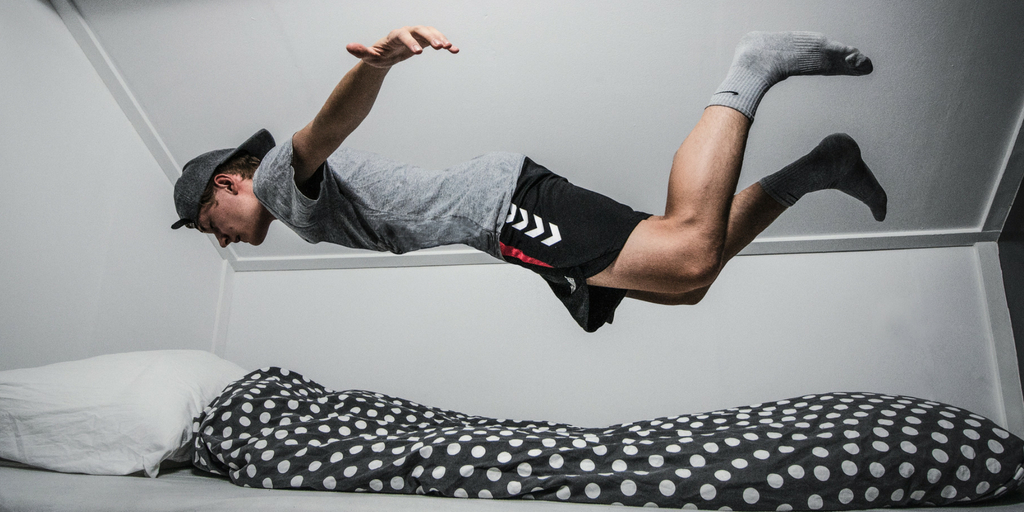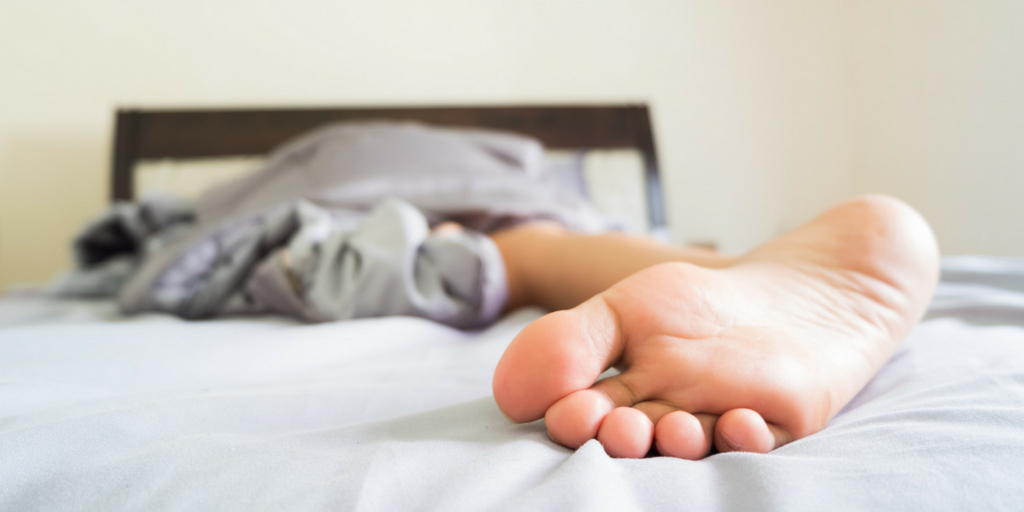How Sleep Can Improve Your Life and Fitness Goals

Most people know that sleep is important, but few understand the effects that the rest can have on their physical and mental health. Successful athletes require a considerable amount of both mental and physical toughness. Therefore, the importance of a good night’s sleep cannot be overstated when it comes to maintaining your fitness goals.

The research is important to consider when planning for a healthier lifestyle. Below are some of the different ways that sleep can affect your fitness, and suggestions on how to sleep your way to a healthier body and mind.
The average adult should be getting seven to nine hours of restful sleep every night. This amount of rest can significantly lower stress and anxiety, as well as the risk of heart disease, stroke, obesity and diabetes. Yet, 40 percent of American adults still aren’t getting the recommended amount of sleep. This means that almost half of the population is leaving itself open to the numerous health risks that accompany a lack of sleep. Aside from the previously mentioned health concerns, fatigue can disrupt your mood, and make you more prone to accidents, so it’s crucial to make time to get the ZZZ’s your body needs.
https://www.youtube.com/watch?v=NUoi95RQ7Do
A good night’s sleep can also significantly improve your athletic performance by making you better, faster, and stronger. While you sleep, your body is able to repair its muscles and bones which should improve your strength and performance at your next visit to the gym. Restful sleep can also restore energy while improving focus, reaction time and decision-making skills, all of which are crucial elements to an athlete’s adaptability and readiness. Studies have found concrete proof of this multiple times, even discovering that good quality sleep leads to better free throw accuracy and faster sprints in basketball players.
The average pro-athlete gets 10-12 hours of sleep a night, two hours more than the recommended sleep time for average adults. The moderate athlete should be somewhere in the middle, however, receiving between 8-10 hours a night, and napping before competitions.
Since athletes put their bodies through rigorous training, it's crucial to maintain a bedroom environment that promotes restorative sleep. A dark room, supportive mattress , and cool temperature all create an atmosphere conducive to deep sleep. It’s also important to avoid distractions at nighttime, including loud noises or electronics, that could lead to overstimulation and suppress your sleep hormones.
https://www.youtube.com/watch?v=1U2qMRGihGg
Keep in mind that it can take weeks to recover from lost sleep. If you’re trying to combat a sleep deficit to improve your health, you’ll have to create a sleep plan…and be patient! On a weekend, try to add an extra hour or two of sleep at night, and maintain that for a few days. Then, over a period of about two or three weeks, slowly transition your bedtime back to a normal time. This should help you feel more refreshed and begin to improve your performance and sense of wellbeing.
Prioritizing your sleep could make a huge difference in the way you feel and the way you perform. Be sure to take this information and cater it to your own needs and lifestyle in order to better prepare your body for peak physical performance.

Katie Hughes is a freelance writer, former NCAA rower, and health researcher who is dedicated to inspiring attainable fitness solutions for working athletes. Katie is constantly researching the connection between sleep and health and finding new ways to optimize physical performance.

The research is important to consider when planning for a healthier lifestyle. Below are some of the different ways that sleep can affect your fitness, and suggestions on how to sleep your way to a healthier body and mind.
Sleep and Health
The average adult should be getting seven to nine hours of restful sleep every night. This amount of rest can significantly lower stress and anxiety, as well as the risk of heart disease, stroke, obesity and diabetes. Yet, 40 percent of American adults still aren’t getting the recommended amount of sleep. This means that almost half of the population is leaving itself open to the numerous health risks that accompany a lack of sleep. Aside from the previously mentioned health concerns, fatigue can disrupt your mood, and make you more prone to accidents, so it’s crucial to make time to get the ZZZ’s your body needs.
https://www.youtube.com/watch?v=NUoi95RQ7Do
Sleep and Exercise
A good night’s sleep can also significantly improve your athletic performance by making you better, faster, and stronger. While you sleep, your body is able to repair its muscles and bones which should improve your strength and performance at your next visit to the gym. Restful sleep can also restore energy while improving focus, reaction time and decision-making skills, all of which are crucial elements to an athlete’s adaptability and readiness. Studies have found concrete proof of this multiple times, even discovering that good quality sleep leads to better free throw accuracy and faster sprints in basketball players.
How to Get Better Sleep
The average pro-athlete gets 10-12 hours of sleep a night, two hours more than the recommended sleep time for average adults. The moderate athlete should be somewhere in the middle, however, receiving between 8-10 hours a night, and napping before competitions.
Since athletes put their bodies through rigorous training, it's crucial to maintain a bedroom environment that promotes restorative sleep. A dark room, supportive mattress , and cool temperature all create an atmosphere conducive to deep sleep. It’s also important to avoid distractions at nighttime, including loud noises or electronics, that could lead to overstimulation and suppress your sleep hormones.
https://www.youtube.com/watch?v=1U2qMRGihGg
Keep in mind that it can take weeks to recover from lost sleep. If you’re trying to combat a sleep deficit to improve your health, you’ll have to create a sleep plan…and be patient! On a weekend, try to add an extra hour or two of sleep at night, and maintain that for a few days. Then, over a period of about two or three weeks, slowly transition your bedtime back to a normal time. This should help you feel more refreshed and begin to improve your performance and sense of wellbeing.
Conclusions
Prioritizing your sleep could make a huge difference in the way you feel and the way you perform. Be sure to take this information and cater it to your own needs and lifestyle in order to better prepare your body for peak physical performance.

Author Bio:
Katie Hughes is a freelance writer, former NCAA rower, and health researcher who is dedicated to inspiring attainable fitness solutions for working athletes. Katie is constantly researching the connection between sleep and health and finding new ways to optimize physical performance.




































































































